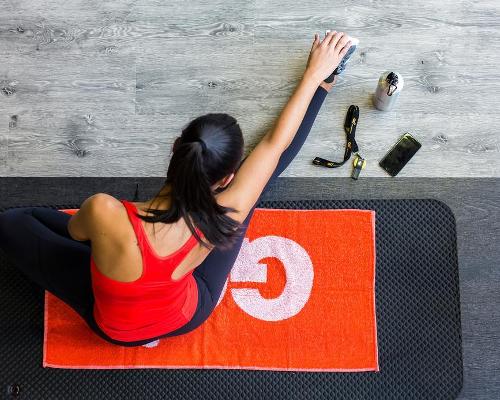21 May 2022
UN picks Go Fit’s public-private model as example of best practice
BY Frances Marcellin

Go Fit has been selected by the United Nations Economic Commission for Europe (UNECE) as an example of best practice for public–private partnership collaboration (PPP).
The company’s core values, model and achievements were presented in a case study at the 6th UNECE International PPP Forum, in Barcelona. The event highlighted successful, people-first PPP collaborations which have the potential to move populations towards the Sustainable Development Goals (SDGs) set out by the United Nations in its 2030 Agenda.
To date, Go Fit has invested in €200m-worth of assets by working with public entities and a PricewaterhouseCoopers (PwC) audit showed the social impact of its PPP model in Spain to be €300m (US$314m) per year.
“The Go Fit case study is another example of the private sector being aligned to promote public interest projects, namely promoting social cohesion, and protecting the planet, while being an engine to drive local prosperity,” said Pedro Neves, UN advisor and consultant on SDGs implementation and smart and sustainable cities, who led the process of selecting case studies.
“The United Nations has estimated that US$3.9tn per year is required for society across the globe to achieve the aims set out in the Sustainable Development Goals. Yet total spending by Governments and the public sector amounts to only US$1.4 trillion. It is the capital, expertise and spirit of the private sector that has the capacity to invest the rest,” he said
The company – which is part of Ingesport – has 20 fitness and wellbeing hubs in Spain and Portugal, an Italian club opening planned for 2023 and UK projects in development. It launched its PPP business model back in 2009.
Under PPP arrangements, Go Fit bids for long-term contracts to design, build, operate and manage facilities on public land. This sees the company mainly working with city councils, but it can also involve the church, schools and community clubs.
Go Fit initially targeted the Spanish market after data showed 67 per cent of the population were inactive and that costs to operate council-run leisure centres in Madrid were around €120m, with only €25m covered by member payments.
“Just imagine how many schools, how many police, how many other vital services the city could have with an extra €95m,” said founder and president of Go Fit Gabriel Sáez in an exclusive interview with HCM at the time of the launch.
“Go Fit is building the wellbeing infrastructure of forward-thinking cities that will serve families and communities for generations to come,” said Sáez. “It's an honour to be recognised by the United Nations for the spirit and passion that our team displays every day to make an impact on society and safeguard our environment. We're proud of this recognition, not just for what we do, but how we do it as a truly people-first organisation.”
Two of the UN’s SDGs are focused around good health and wellbeing and sustainable cities and communities.
Widening economic and social inequalities are seen as a problem factor for achieving overall good health, and this is an area of focus for Go Fit.
“We believe that 100 per cent of the population should have access to extraordinary high-quality evidence-based services that help enhance wellbeing for all the family at an affordable price,” stated Go Fit’s case study.
“Of critical importance to us is seeing high levels of participation by older adults and women. A study by the Go Fit Lab has shown that women are underrepresented in all forms of sport and physical activity across society, apart from in Go Fit facilities, where they're over-represented.”
While members pay €37 per month, there are concessions for the economically disadvantaged and members’ children do not pay, making inclusion more affordable for families.
Go Fit is involved with over a hundred projects each year that aim to reduce inequality, such as supporting local sports teams and helping provide socially excluded children with access to sport.
According to eurostat 24.2% of children in the EU are at risk of social exclusion – more than working-age adults and older people.
Close Window